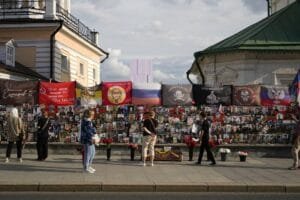Algeria seeks to boost its image on the international stage by launching an initiative to resolve the crisis in Niger
At a press conference at the Abdelatif-Rahal International Conference Centre, Algerian Foreign Minister Ahmed Attaf suggested to the putschists in Niger “a six-month transition plan” before a return to constitutional and democratic order. This initiative favours political dialogue rather than military intervention, as advocated by ECOWAS, to resolve the crisis in Niger.
Initially, Nigerien general Abdourahamane Tchiani had announced a transition period lasting a maximum of three years. However, Algeria believes that “the process can be completed in six months, so that the coup d’état does not become a ‘fait accompli’”, according to the Algerian Foreign Minister.
In his speech delivered on behalf of Algerian President Abdelmadjid Tebboune, Ahmed Attaf began by reiterating the illegitimacy of any change outside the constitutional framework. He went on to say that Algiers intended to submit proposals to the next African Union summit for the “consolidation of this principle”.
The Algerian initiative will take place in six stages. Although no details were yet given, the plan will be the subject of consultations at three levels: “the first between the various parties in Niger, the second with neighbouring countries and the member states of the Economic Community of West African States (ECOWAS), and the third with the countries that support the peaceful solution to this crisis”, said the minister.
The details of this proposal were made possible by the many consultations and contacts that Algeria has had with its Nigerien counterparts since the crisis began. Indeed, Ahmed Attaf pointed out in his speech that his country’s ambassador in Niamey, Mehdi Behadda, had met three times with General Abdourahamane Tchiani, who led the coup. Following several discussions, the two men agreed on the need for a transformation towards a constitutional and democratic system.

Algeria is also proposing the organisation of an international symposium on development in the Sahel, which, according to the Algerian Minister of Foreign Affairs, is the only way to ensure lasting peace and security in the region. In the view of the Algerian authorities, the political approach to resolving the region’s problems “is not enough”, asserting that “complementary and integrated action on the economic front is necessary”.
“Historically, the problem in the Sahel is linked to the concentration of efforts on the political and security solution, to the detriment of development, which is why the new methodology is based on achieving development, in order to place the political and security solutions on solid foundations”, explained the Algerian Foreign Minister.
On the sidelines of this speech, the number two in the Ministry of Foreign Affairs, Lounes Magramane, travelled to Niamey, where he held talks with the Prime Minister, Ali Mahaman Lamine Zeine. However, no meeting was arranged with former head of state Mohamed Bazoum, leaving it unclear whether or not he will participate in the transition plan proposed by Algeria.
Another important point about this initiative is that it seems to have been accepted by regional and international powers favourable to the political option, such as the United States, Italy, Germany and Canada.
“Algeria has reacted to the new situation in Niamey since the first day of the coup d’état and has engaged in contacts and consultations with various internal, regional and international parties, in order to spare the country and the region in general from the repercussions of military intervention, a view shared by several governments such as Italy, Canada and the United States”, said the Algerian Foreign Minister. Algeria is thus seeking to convince its neighbours and the international community of its initiative to resolve the Nigerian crisis. However, the British media outlet Al Arab news points out that “the lack of neutrality, the growing rapprochement with Russia and the persistent tensions with France are making its mission difficult”. Indeed, although the Algerian authorities seem optimistic about the success of this plan, analysts have described the initiative as “utopian”, thereby minimising its chances of success. A number of sticking points were raised, notably the Libyan, Syrian, Malian and Tunisian issues, the divergent approaches in the Maghreb to Israel, and Algeria’s non-membership of the BRICS group.
Source : Atalayar











Add Comment